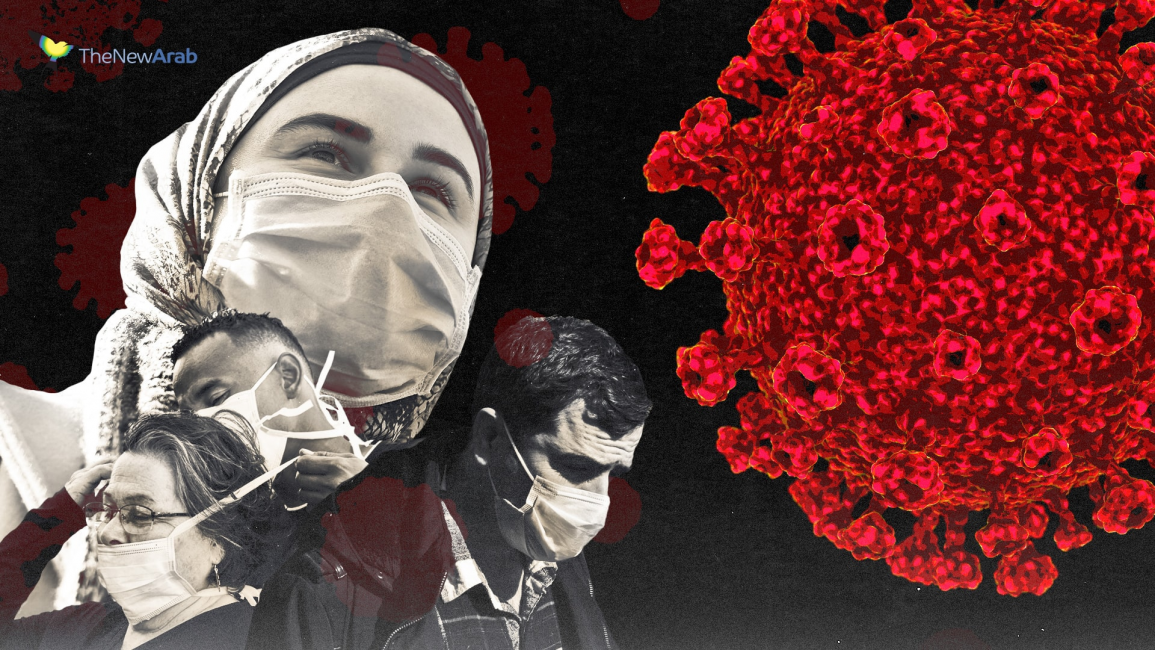The Middle East at war with coronavirus: Top stories from 19 March
UK pulls soldiers from Iraq to help with coronavirus response at home
The UK defence ministry said it was withdrawing some of its troops from training security forces in Iraq due to the coronavirus outbreak.
The NATO training programme has been "paused" for 60 days as a precaution because of COVID-19, however key UK military personnel will remain in Iraq supporting the government in Baghdad, the coalition and UK interests, the ministry said.
The troops brought home could be redeployed elsewhere in the world, but could also be asked to support family members affected by the outbreak, which has claimed more than 100 lives in Britain.
Defence minister Ben Wallace said: "In recent months the tempo of training has significantly declined, which means that I am in a position to bring back the current training unit to the UK," adding that he was still committed to the "complete defeat" of remnants of the Islamic State group.
Iran's death toll rises but new cases fall
Iranian authorities on Thursday announced 149 new deaths from the novel coronavirus, raising the toll to 1,284 in a country that is one of the worst hit by the pandemic.
While Thursday's death-toll surpassed that of the previous day by two, the number of new cases has fallen, according to figures provided by Deputy Health Minister Alireza Raisi.
A total of 18,407 people have contracted the disease in Iran, with 1,046 new cases confirmed in the last 24 hours.
Health ministry spokesman Kianoush Jahanpour tweeted that at the current rate, "50 new cases of infection are detected every hour and one death recorded every 10 minutes".
Authorities have discouraged travel and days out for the upcoming Persian New Year holiday of Nowruz on 3 April.
|
Egypt enacts night-time shutdown
Egypt has ordered cafes, restaurants, nightclubs and sporting clubs to close between 7 PM and 6 AM each night, in an attempt to slow the spread of the virus.
Bakeries, grocery stores, pharmacies and supermarkets will be allowed to remain open for their usual hours.
Extra cleaning operations have also taken place across the country, including in hotels and at sea by the armed forces.
Authorities have also been clamping down on those who have dared to dispute the official figures of infections. The security services revoked the authorisation of a Guardian correspondent in Cairo who cited a Canadian study suggesting the number of Egyptian cases was far higher than official reports suggest.
Four women are also set to be released after they were arrested for protesting for the release of prisoners to prevent a health crisis in prisons. Despite having paid 5,000 EGP bail each on Thursday morning, the women were still being held in detention by Wednesday evening.
Beirut airport shuts down for the first time since 2006 war
Lebanon on Wednesday closed its main airport to stem the outbreak that has killed four people in the country.
The Beirut International Airport was shuttered by the authorities. No one will be allowed in through maritime or land ports of entry during that period.
Diplomats, UN peacekeepers, employees of international organisations and goods shipments would still be permitted entry, the Information Minister announced last week.
Most institutions and businesses remain closed, but security forces, health institutions, utilities companies and shops selling food will be exempted from the shutdown.
Citizens have been ordered to remain at home and go out only in "extreme necessity" until 29 March.
Streets in Beirut have been largely empty in recent days, thanks in part to a social media campaign calling for social distancing, under the Arabic-language hashtag "Stay at home".
|
IATA says Middle Eastern airlines need billions in emergency state aid
Up to $200 billion is needed to rescue the world's airlines during the coronavirus crisis, the global aviation association said Thursday, appealing especially to African and Middle Eastern countries to provide emergency assistance.
Airlines worldwide face an unprecedented existential threat as the COVID-19 pandemic shuts down global travel, with the Middle East and Africa witnessing a 60% fall in demand for the remaining routes.
In the Middle East, the air transport industry's economic contribution stands at $130 billion, some 4.4 percent of GDP, and supporting 2.4 million jobs, IATA said.
IATA's CEO, Alexandre de Juniac implored governments to take urgent action to help their airlines emerge from the crisis "in a fit state to help the world recover".
Carriers across Africa and the Middle East had begun implementing extensive cost-cutting measures including flight bans and travel restrictions to mitigate the financial impact of the pandemic, but revenues have been plummeting even beyond cost-containment measures, IATA warned, adding that airlines in the regions on average held enough cash reserves for approximately two months.
IATA called on governments to provide support in various ways, including through direct financial aid to passenger and cargo carriers, loans and loan guarantees and tax relief.
Saudi Arabia cancels flagship 'Jeddah Season' festival
Saudi authorities on Thursday announced the cancellation of "Jeddah Season", a much-hyped summertime entertainment and cultural festival in the Red Sea port city, as the country clamps down on large gatherings.
The event, which was first run last year, is part of efforts by Crown Prince Mohammed bin Salman to open up the Saudi cultural scene and boost domestic spending as well as the nascent entertainment and tourism sectors.
 |
Agencies contributed to this report.
Follow us on Facebook, Twitter and Instagram to stay connected


